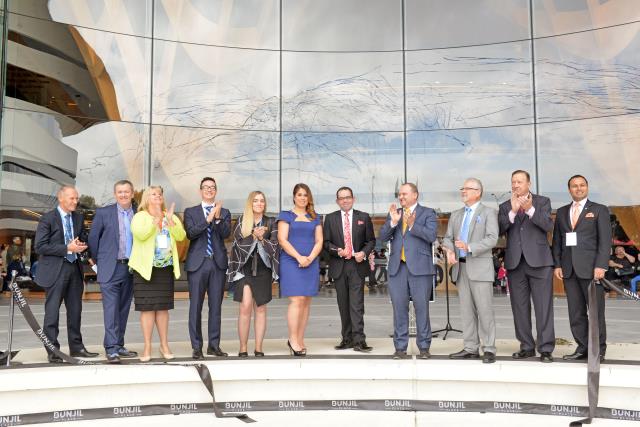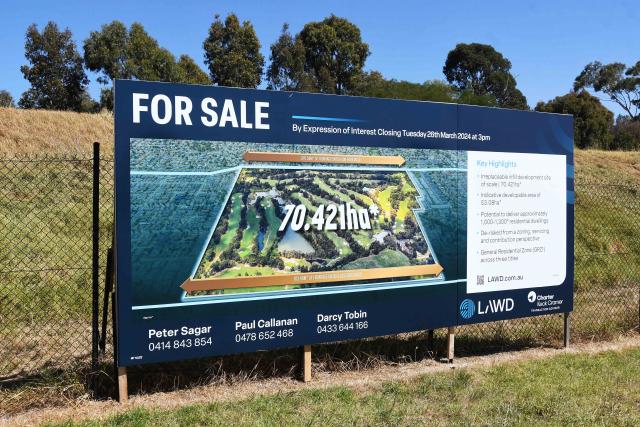Casey chief executives had “misgivings” about councillor conduct but felt limited in what they could do, the IBAC Operation Sandon report found.
A “culture of avoidance” and a lack of “adequate safeguards” at Casey Council allowed developer John Woodman’s “improper” influence over councillors to “flourish unchecked”, IBAC reported.
Mayors Geoff Ablett and Sam Aziz received about $1.15 million in benefits from Woodman while ushering through council planning decisions in favour of Woodman’s interests, the report found.
Councillors repeatedly failed to declare clear conflicts of interest, manipulated decision-making processes and bullied council officers and other councillors.
“‘I can’t get up and say, “Mr Mayor, I don’t agree with the council, it’s not urgent”,” former chief executive Mike Tyler told the inquiry.
“It’s not up to me [as CEO] to debate, I didn’t have that [authority]’.”
This was in relation to what Tyler termed an “unusual” ‘urgent business’ motion rushed onto the agenda of a 2014 meeting by Aziz, before council officers could review the idea and give advice to councillors.
It started the push for Amendment C219 to rezone industrial land for housing in Cranbourne West and represented a $35 million windfall gain for developer Leighton Properties, who hired Woodman as a consultant.
However, the proposal was rejected as “lacking strategic justification” by local and State planning officials.
Tyler, who opposed C219, was later pushed to resign by then-mayor Ablett.
With the support of Aziz and Cr Amanda Stapledon, Ablett cited councillors had lost confidence in him.
Among their ‘serious issues’ was councillors being separated or “locked out” of the administrators’ wing at the new Bunjil Place offices.
“CEOs have done the right thing and asserted themselves around all sorts of matters with councillors, and haven’t – the outcome hasn’t been positive for them in terms of their continued employment,” current CEO Glenn Patterson told the inquiry.
Councillors elected Aziz as mayor weeks after a misconduct finding against him for a “pattern of bullying” another councillor in 2015.
“The panel process not only delivered an inadequate outcome, but was fraught with personal or political risks for the complainant, who withdrew part of their application – which sought a finding of gross misconduct – in order to bring the matter to a close,” the report stated.
IBAC quoted the Municipal Monitor’s report into Casey Council in 2020 that there was an ‘avoidance culture’ among councillors.
“There is an overriding view that if one or both councillors, at the centre of the investigation to date, were removed everything would be all right and that the remaining councillors have ‘done nothing wrong’,” the Monitor reported.
The Sandon report stated that councillors repeatedly failed to declare or fulling disclose conflicts of interest.
Aziz “blatantly failed” to declare conflicts involving his personal interests and councillor duties.
Ablett, Stapledon and councillors Wayne Smith and Susan Serey claimed ignorance of the parties affected by a planning decision or the source of donations to them.
“As Councillor Aziz’s conduct and explanations make clear, his failure to disclose conflicts of interest was not due to a lack of understanding of what constitutes a conflict of interest or how a declaration should be made,“ the report read.
“Rather, he did not perceive the environment in which he operated as likely to lead to exposure of his conflicts or to preclude him from exerting influence on decisions in which he had a clear conflict of interest.”
IBAC recommended supporting council chief executives to mandatorily report councillors’ serious misconduct such as breaches of conflict-of-interest.
It also called for stronger and universal Model councillor codes of conduct, governance rules and transparency policies for meetings across all councils.
They included more stringent reporting of donations and conflicts-of-interest, stronger punishments and more effective ways to deal with councillor misconduct.
Casey Council – whose councillors were sacked during the Sandon inquiry – has been under a Panel of Administrators since 2020.
“Operation Sandon focused on very specific planning and developer matters and highlighted alleged impropriety and conflicts of interest by former councillors, not Ccouncil officers,” the council stated in response to the IBAC report.
“At no time has the conduct or professionalism of council officers been called into question.”
It states it has delivered reforms in conflicts-of-interest, governance, councillor protocols in land-use planning and a policy to guide strategic planning scheme amendment requests from developers.
Casey also launched a Community Leadership Program for emerging and existing community leaders.
“Council has been delivering on the reform recommendations set out in the Municipal Monitor’s Report and is committed to undertaking any additional work necessary towards improving Governance at Casey, in line with the IBAC recommendations,” chair of administrators Noelene Duff said.
In his response to the report, Woodman denied acting improperly or illegally.
Ablett also rejected IBAC’s inferences of corrupt, illegal or unethical behaviour.
IBAC stated it rejected both submissions.
Aziz didn’t formally respond to the report but has publicly denied any wrongdoing.
Chief executives Tyson and Patterson were clear of “any adverse comment or opinion“, the report stated.







